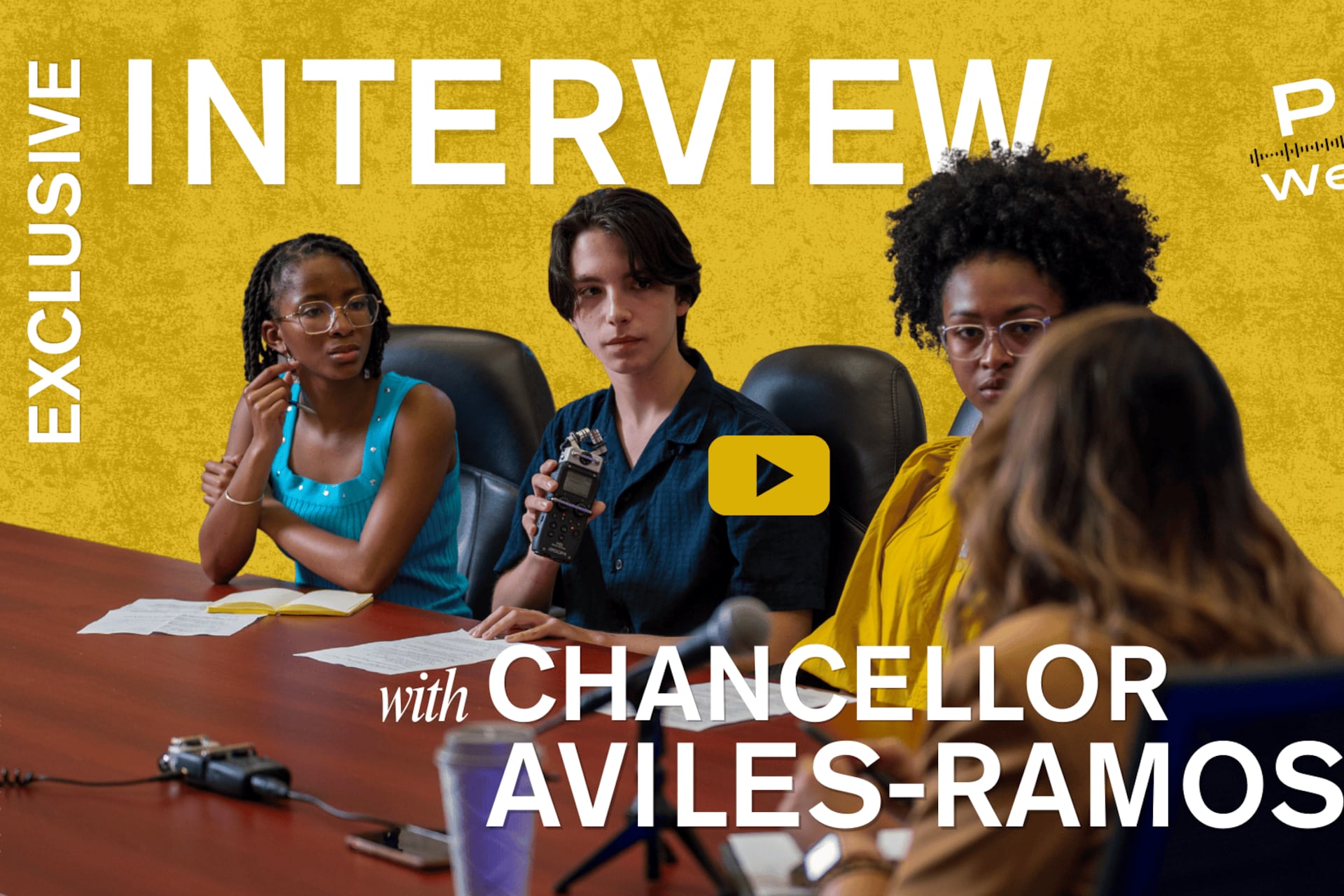Sign up for Chalkbeat New York’s free daily newsletter to get essential news about NYC’s public schools delivered to your inbox.
As roughly 900,000 New York City students prepare to return to school on Thursday, Sept. 4, three student journalists got a preview of the year ahead from the head of the nation’s largest school system.
In this special back-to-school episode of P.S. Weekly, schools Chancellor Melissa Aviles-Ramos shared her thoughts on pressing education issues ranging from the cellphone ban to restorative justice and whether she’d encourage her middle school daughter to take the Specialized High School Admissions Test, or SHSAT.
On the cellphone ban, the chancellor acknowledged there will be a “detox” period and promised the Education Department is working “behind the scenes” to develop a way for students and families to communicate issues with their schools’ rollout. For restorative justice — initiatives that focus on conflict mediation rather than punitive punishment — Aviles-Ramos said she “completely” supports the practice and expects to “amp up” the focus on it. And for the SHSAT, she said she’s not encouraging her daughter to take it, but will follow her daughter’s lead and support whatever decision her daughter chooses in terms of pursuing the test or not.
Student journalists Aponi Kafele of Essex Street Academy, Roberto Bailey of Hunter College High School, and Autumn Wynn of Park Slope Collegiate also pressed the chancellor on her commitment to the city’s Journalism for All initiative and asked what students can do if they don’t feel their schools are sufficiently academically rigorous.
Aviles-Ramos, a former student journalist herself, said the Education Department was looking for ways to successfully implement journalism programs across schools. And she encouraged students to think critically about whether they are being challenged in class, not in terms of the amount of homework they’re getting but rather whether they’re learning to think for themselves and build new skills.
“We’re outlining what a classroom should look like and what the teacher should be doing, what the students should be doing, and what the family should be doing and experiencing,” she said, previewing a push for the new school year to give students and families a new tool to understand whether they’re getting a quality education.
“This is how we build accountability,” Aviles-Ramos said.
Amy Zimmer is the bureau chief for Chalkbeat New York. Contact Amy atazimmer@chalkbeat.org.





